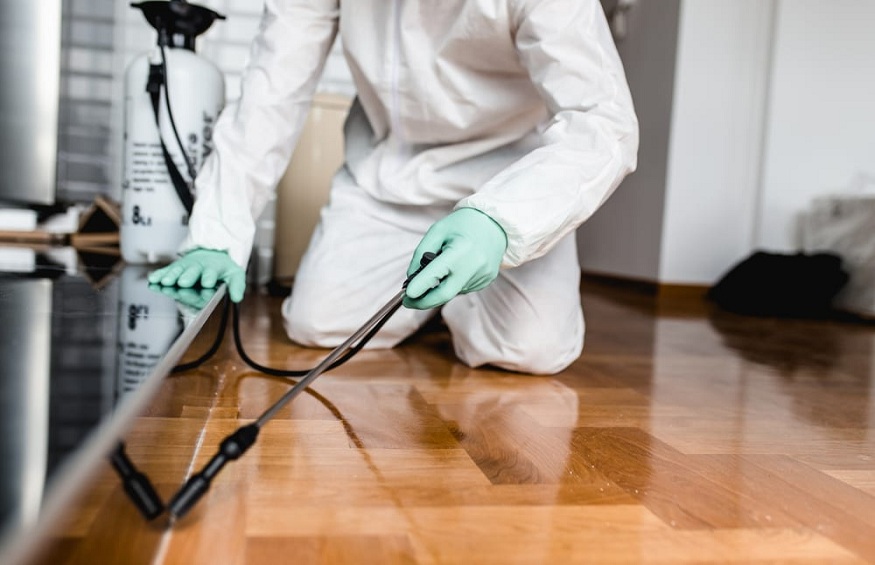Gardening is a fulfilling and relaxing hobby that lets you get in touch with nature and grow your own organic, fresh food. Nevertheless, it may be depressing to see your laborious efforts destroyed by obtrusive animals and pests. Although there are chemical remedies, they can harm the ecosystem and help insects. Fortunately, there are several organic methods that can deter pests while preserving the balance of the ecology in your garden.
In this blog post, we’ll discuss some of the pest repellent tips and when to search for “local pest control near me” so that you can protect your garden against pests and reap a bumper crop.
Companion Planting
Plants are intentionally placed close to one another in companion planting to ward off pests or draw beneficial insects. For example, marigolds release a smell that deters aphids and other unpleasant insects. If you plant them next to crops like tomatoes and peppers, you may make a natural insect barrier. Similarly, the strong scents of herbs like basil, rosemary, and mint can help repel insects.
Beneficial Insects
Pest populations can be effectively managed in your garden by introducing beneficial insects. Praying mantises eat a range of garden pests, whereas ladybugs are ferocious aphid hunters. A healthy environment in your garden may be preserved with the assistance of bees and other pollinators. Planting nectar-rich blooms and providing proper habitats will draw these beneficial insects.
Physical Barriers
Physical barriers surrounding your plants might be a useful tool for deterring pests. Protect plants from insects, birds, and even larger pests like rabbits by using lightweight cloth row covers. By putting up fences around your garden area, you can keep deer and other larger animals away from your plants. We would suggest you search for “best pest control services near me” to get this job done by professionals.
Natural Repellents
Natural repellents are a great way to protect your plants from pests because many bugs are sensitive to particular tastes and odors. Sprays made from garlic, onions, and spicy peppers may be made at home and used to ward off a variety of insects. Neem oil and eucalyptus oil are two essential oils that may be combined with water and sprayed on plants to deter pests.
Healthy Soil and Plants
A pest infestation can be avoided in your garden by maintaining your garden. This way, you won’t even have to get local pest control services. Plants that are strong and robust are better able to fend off disease and insect assaults. By supplementing the soil with compost and other organic materials, you may ensure adequate soil fertility. Plant health and resilience can also be influenced by optimum mulching, enough space between plants, and proper watering.
Trap Crops
Planting a sacrifice crop that is particularly alluring to pests is part of using trap crops. By doing this, you can draw pests’ attention away from your primary crops. You may, for instance, plant a few additional rows of a crop like cabbage to serve as a trap for the caterpillars if you are struggling with infestations. Your primary crops will prosper while the pests are distracted by the trap crop in this fashion.
Regular Maintenance and Monitoring
Regular garden inspections can help you identify pest problems early and stop them from developing into more serious difficulties. Look for pest indicators in the soil, at the base of plants, and on the undersides of leaves. The pests can be stopped from spreading by removing any damaged leaves or plants and taking immediate care of any problems. You can also Google “affordable pest control near me” to get routine inspections done on your property.
Conclusion
Natural methods need some trial and patience to create a pest-resistant garden, but the results are well worth the effort. You may grow a productive garden while reducing the effect of pests by combining companion planting, helpful insects, physical barriers, natural repellents, preserving good soil, and other techniques. Adopting these best pest control services techniques not only promotes gardening that is more environmentally friendly and sustainable, but it also strengthens your relationship with the complex web of life that surrounds your plants. So roll up your sleeves, don your gardening gloves, and get ready to enjoy a lovely and fruitful garden that is naturally free from the difficulties posed by niggling animals.

